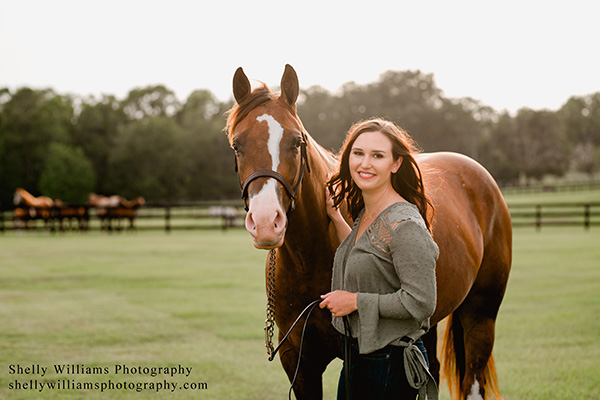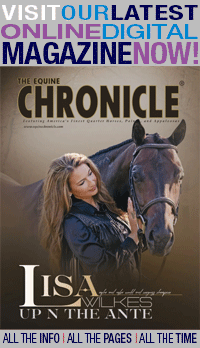WARNING: Just Posting a Sign Will Not Protect Your Horse Business

By: Attorney, Kimbrell J. Hines
At your next visit to a barn or show, look around and you will probably see at least one “WARNING” sign citing the state’s equine law. Aside from Maryland and California, every state has an equine law. These laws limit the legal remedies for lawsuits seeking damages for horse-related injuries. Despite popular belief, most equine laws only offer limited protections, leaving many who do not take proper steps to protect themselves exposed to liability.
Unprotected Activities
Contrary to popular belief, equine laws do not prevent horse owners and professionals from being sued. Instead, these laws provide a statutory defense that can be asserted by a defendant to a lawsuit. Even if successful with a statutory defense, defending a lawsuit can be stressful, time-consuming, and expensive. In some states, to be protected under the law, a horse owner or professional must obtain a written document with the law’s warning notice clearly printed on it signed by the participant or post a sign stating the law in a visible location near the equine activity.
Additionally, many state equine laws exempt certain activities from their protections. Most state equine laws, do not provide protections if a horse owner or professional:
- Acted carelessly about the safety of a participant.
- Provided faulty tack or equipment.
- Did not determine the ability of the participant in handling a particular horse.
- Failed to warn someone of a dangerous condition.
- Intentionally injured the participant.
For activities not covered under state law, horse owners and professionals should have appropriate insurance coverage and use a liability release agreement (commonly called a waiver ).
Benefits of Equine Laws
Although equine laws do not prohibit lawsuits or protect all activities, they do offer significant benefits. First, equine laws generally protect equine owners and professionals (including activity sponsors) from liability if an injury results from an “inherent risk” of horses. An inherent risk is a risk that is unavoidable, no matter how careful a person is. Equine laws generally protect against inherent risks resulting from:
- The likelihood of a horse behaving in a way that may cause injury, harm, or death to a person around it (examples: bucking, kicking, rearing, biting).
- The unpredictability of a horse’s reaction to sounds, sudden movement, people, other animals, unfamiliar objects, etc. (examples: horses spooking at plastic bags or the sign in the corner they walk past daily).
- Hazards on the property (examples: holes in the arena or field, wet pavement).
- Collisions with other equines or objects (examples: the crowded warm-up pen).
Second, equine laws provide a legal defense to negligence suits arising from horse related injuries based on the theory the injured person assumed the risk of choosing to be near horses. Negligence is the failure to take proper care in doing something. Equine laws recognize horses can be dangerous and involve risk, and no matter how careful someone may be, even the most gentle and well-trained horses are unpredictable. If the statutory defense is successfully asserted, the possible damages available to the person suing will be reduced and or even denied. Again, having a waiver provides additional support for the defense that the injured party accepted the risk.
The defense provided by equine laws discourage lawsuits. Attorneys representing those seeking compensation for horse related injuries generally work on contingency arrangements— meaning they get paid a percentage of the money their client wins. Attorneys recognize the legal defense provided by the law as an obstacle to success. Even if successful, the available damages will most likely be reduced, which ultimately results in less attorney’s fees. Consequently, those seeking to file such suits, may find that to proceed they would have to, at a minimum, pay out of pocket for an attorney to take the case outside of a contingency arrangement.
The legal defense offered by the statute often leads to earlier, and lower value settlements. Ultimately, lower defense costs, fewer lawsuits, and less expensive settlements result in less risk for insurance companies. Lower risks enhance insurance companies’ willingness to write coverage, which lowers rates for the insured.
Practical Tips
First and foremost, read your state’s equine law to become familiar with the scope of protected activities. Second, post a sign stating the law’s warning provision in a visible location near where the equine activity begins and obtain a written document with the law’s warning notice clearly printed on it signed by the participant. Although in some states, a horse owner or professional may use a signed written document in lieu of posting a sign with the equine law, it is always good to post a sign on the property in a visible place. Multiple warnings provide even more notice to participants that horses are dangerous and interacting with or near horses involves risk.
Equine laws are no substitute for other risk-management practices. Create and maintain safe practices to reduce the likelihood of accidents. If an accident occurs, safe practices show you took proper care, and therefore are not responsible for the person’s injury. Obtain proper liability coverage for all equine activities. Finally, obtain a well-drafted waiver, and have legal counsel lined up to answer any questions that come up regarding your state’s equine law.
Kimbrell J. Hines is an active equestrian and an attorney with Williams Parker in Sarasota, Florida. She obtained her law degree and bachelor’s degree from the University of Florida, where she competed for the University of Florida Equestrian Team. She also has a Master of Science in Human Resource Management from the University of Tennessee. Kimbrell may be reached at khines@williamsparker.com or (941) 552-5547.
This article is provided as a guide for educational purposes only. It is not intended to serve as legal advice and should not be used as a substitute for consultation with an attorney.











